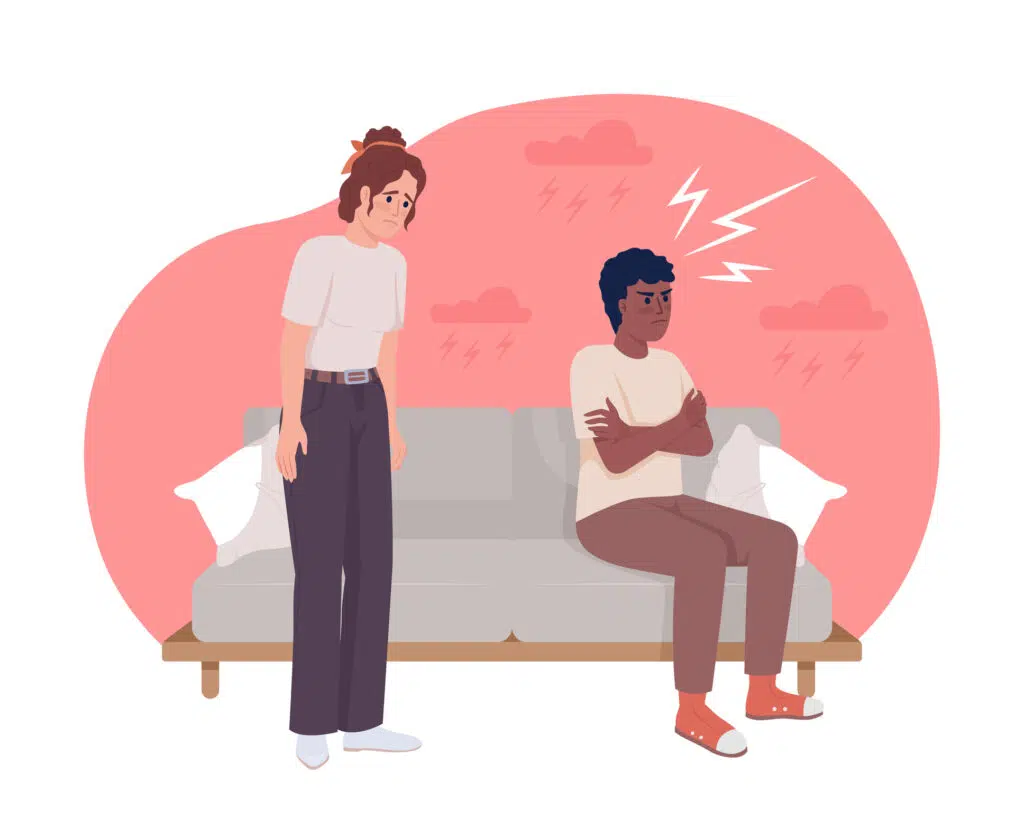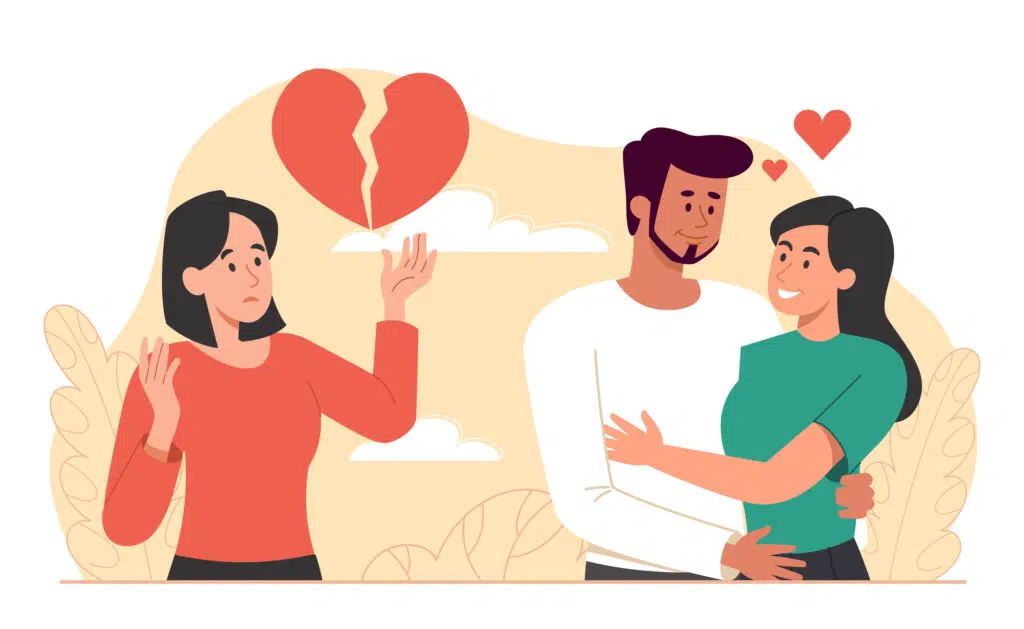What to Do When OCD Becomes Too Much

When OCD becomes too much or gets worse, it’s normal to feel alone and powerless. At a severe level, OCD can completely impact a person’s ability to work, go to school, maintain relationships, or even take care of themselves. Obsessions and compulsions can feel like they are taking over your life. But there are things you can do to help you feel more in control, manage your OCD, and improve your well-being.
Which OCD Do I Have?
OCD is a common disorder that can affect people of all ages. But, typically, most people are diagnosed in their late teens. OCD stands for obsessive-compulsive disorder. It’s a mental health condition where an individual has frequent and unwanted thoughts (obsessions). To get rid of these thoughts, they feel they must do something over and over (compulsions). The thoughts are very persistent and intrusive, and the behaviors feel non-negotiable. When an individual can’t perform the behavior, it can be very stressful, and sometimes feel as if it will result in dire consequences if they can’t complete the behavior.
The actual thoughts and behaviors can vary massively depending on the person. Examples of repetitive behaviors include:
- Washing hands
- Counting
- Re-checking things
- Excessive cleaning
- Ordering and re-arranging objects
Technically, there are not several types of OCD. Instead, there are often similar obsession themes and compulsive behaviors—for instance, fear of germs or contamination or having things in perfect and symmetrical order.
Individuals with OCD can have obsessions or compulsions, or both. It can look different, depending on the person.
Does OCD Get Worse with Age?
So, can OCD get worse with age? The short answer is yes, and here’s why.
Dr. Tirrell De Gannes, Psy.D., licensed clinical psychologist, says, “OCD is a series of patterns, and when patterns are reinforced with time, they are strengthened in the brain. Older patterns take more time to undo. It can be done though it feels overwhelming.”
Essentially, OCD symptoms can worsen over the years when obsessive compulsions and obsessions are left unchecked. Ultimately, thoughts and behaviors worsen as they form a loop that repeats and repeats. But that’s not to say those patterns of thinking will be ingrained forever, just that it takes more time to treat.
How Do I Know If I Need Help with OCD?
When we talk about what to do when OCD becomes too much, what does that even mean? What does it look like in real life?
“OCD thoughts feel like an itch that only you know how to scratch. You will know it is taking over when it feels like actions are not options due to mental discomfort. Loved ones should look out for unnecessary/excessive repetition of words or actions and the inability to mentally shift from pervasive maladaptive thoughts,” says Dr. Tirrell De Gannes.
Think about the time that OCD consumes in your life. It could be stealing hours of your day, making it impossible to concentrate, and interfering with your daily life.
It’s important to say that your OCD doesn’t need to be out of control to seek help. While it’s a natural reactive step to get help when something feels out of control, seeking treatment at any stage is beneficial.
4 Steps to Take When OCD Becomes Too Much
OCD is a mental health disorder that can be treated. Remember that the treatment will take time and depend on how severe your OCD symptoms are. When OCD takes over, it can leave you feeling helpless, but you can live with and manage OCD.
- Talk to Someone You Trust
Like other mental health conditions, most people find it really hard to talk about OCD. Maybe you think that people won’t understand. Talk to someone you trust and try to share what you’re going through. Sometimes even the thought of finding a therapist can be overwhelming, and going through that process with a friend or family member is beneficial.
- Join a Support Group
Speaking to someone with a similar experience can be helpful. It can be comforting to know that you are not the only one going through it. Support groups allow you to share experiences and provide advice to those with OCD. It also gives you the opportunity to socialize and not feel so alone. OCD support groups are often useful for family members and friends of those affected by obsessive-compulsive disorder. Support groups are not a replacement for therapy but can be helpful.
- Look After Your Basic Needs
When talking about your basic needs, try to cover the essentials. So, get enough sleep, try to eat healthy foods, and do some sort of physical activity. It could be going for a walk or a swim. Exercise is a natural anti-anxiety treatment that can help to refocus the mind. It’s not uncommon for stress and anxiety to make OCD worse. Managing stress through exercise, relaxation techniques, or mindfulness can be helpful for some as part of OCD recovery.
- Speak to a Mental Health Professional
Ultimately, speaking to a mental health professional is crucial in treating OCD. Dr. Tirrell De Gannes says, “see a therapist that knows how to address OCD symptoms. A therapist can help develop a plan to challenge and minimize the mental struggle within the person’s mind.
Remind yourself that OCD is a close cousin of anxiety, and both are based in some level of normalcy. The ability to speak about your thoughts and notice how not all of your thoughts are uniquely atypical can be therapeutic.”
How Thriving Center of Psych Can Help
Effective treatment for obsessive-compulsive disorder typically involves a type of cognitive-behavioral therapy called exposure and response prevention (ERP). It’s a therapy that encourages you to confront your obsession while resisting the urge to carry out the compulsion.
Dr. Tirrell De Gannes says, “OCD is treated with building up to addressing the concerns that are perpetuated in the mind. We create a series of approximations to eventually lead up to challenging the pervasive maladaptive cognition and/or undo the compulsion and manage the resulting discomfort.”
An example of challenging a compulsion is taking a compulsion like checking your stove five times down to four, then three, then ultimately once. An example of challenging an obsession would be to take an obsession like ‘someone is going to break in if I don’t clap,’ and we work on reducing the tension and discomfort felt so it feels like an option and not a mandate.”
ERP aims to provide you with the skills you need to control the disorder. The goal of this type of therapy is to help you learn that you can have intrusive thoughts and experience distress without losing control or avoiding certain situations. As you can imagine, this process takes time. It’s important to be patient with yourself.
If you’re experiencing OCD or concerned about a loved one, schedule an appointment or contact our offices. The team of compassionate psychologists at Thriving Center of Psychology can provide the treatment you need to manage your OCD and start stepping in the right direction.

How to Move On After a Friendship Breakup
Friendship breakups can sting just as much as a romantic breakup. After all, you’re experiencing a loss of shared history and an understanding of each other that can leave you feeling lonely and isolated. Not all friendships are forever, but moving on from the loss of a friendship does take time and some self-compassion.

Signs You’re in a Toxic Relationship
A toxic relationship can chip away at your well-being and happiness. Toxic partners can be manipulative and charming, making it difficult to recognize the signs that you’re in a toxic relationship. You deserve to be in a supportive and healthy relationship.

10 Common Marriage Reconciliation Mistakes to Avoid After Infidelity
Infidelity can leave couples devastated. If you’ve been affected by infidelity and want to salvage your relationship, rebuild trust, or make a tough decision, keep reading for 10 common reconciliation mistakes to avoid after infidelity.

Survey: 72% of Americans are Stressing About the Upcoming Presidential Election
Political viewpoints in the U.S. have always been contentious, but is the impact of politics in the United States making it difficult for people to live their everyday lives? With some anticipating another brutal and long campaign season ahead of the upcoming 2024 presidential election, nearly half of Americans say politics is negatively impacting their mental health.




